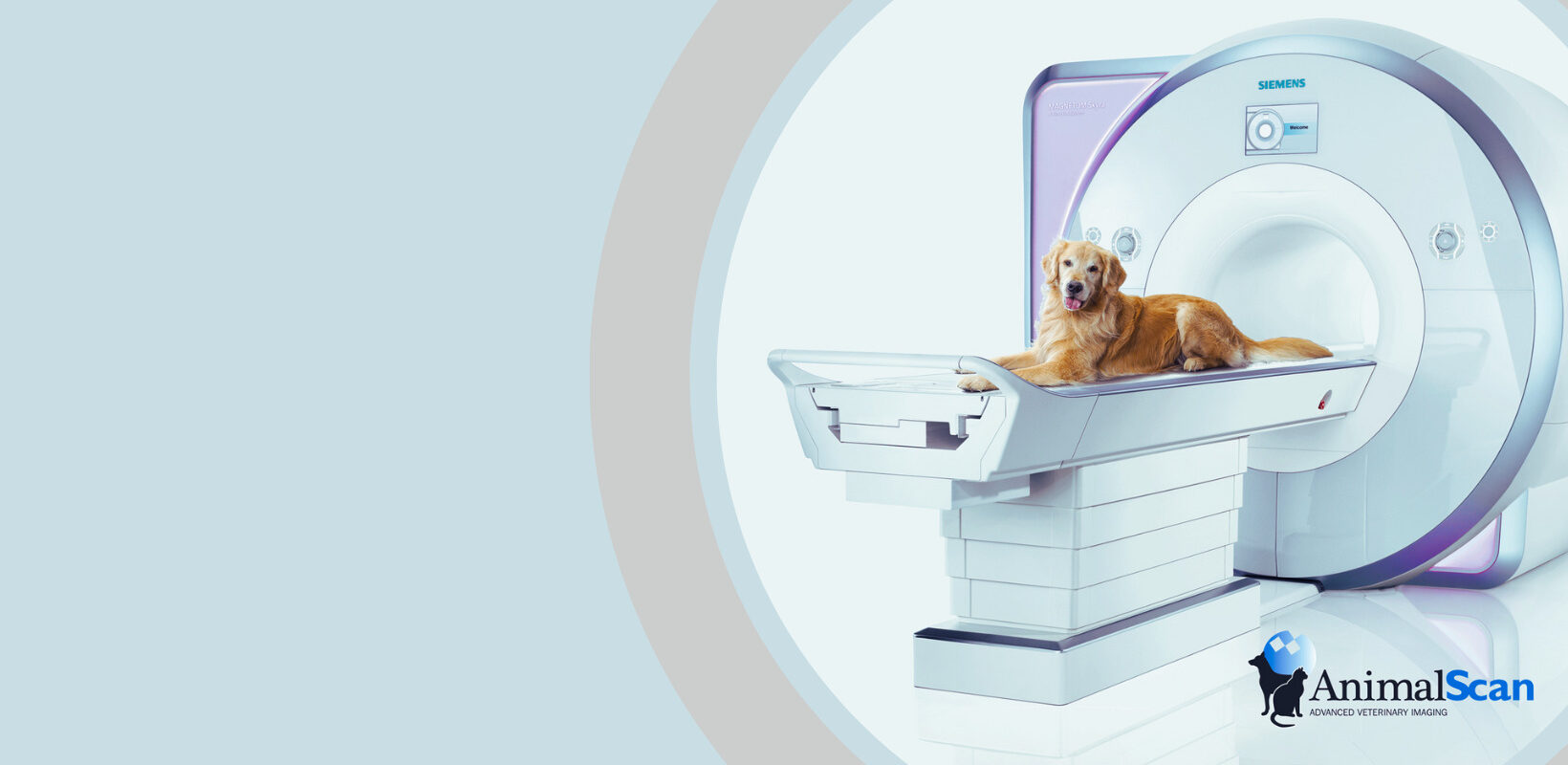Symptoms of Brain and Spinal Tumors in Pets
Diagnosing brain and spinal tumors in cats, dogs, and other animals can pose a challenge for veterinarians and veterinary specialists. In many cases, owners will discover the cancer when holding or grooming their pet, or they’ll notice changes in behavior such as listlessness or a loss of appetite. Often seizures are often the only symptom dogs and cats show if there is a brain tumor present. For spinal tumors changes in movement and coordination as well as weakness in the limbs or paralysis are often present.
Diagnosing Brain & Spinal Tumors
MRI is typically the imaging modality of choice to diagnose brain and spinal tumors in veterinary medicine. Often, a diagnosis of a brain tumor is made by imaging the pet’s brain. If a mass is present its important to rule out infection by ordering tests on the blood or/and spinal fluid (CSF tap). For brain tumors your general practice veterinarian can refer your pet to any veterinary MRI outpatient facility for a brain scan. Identifying the location and MRI scan region of a spinal tumor may require a veterinary specialist. If you are unsure of where to take your pet please contact AnimalScan to put you in touch with your nearest specialty facility.
Treatment
Your veterinarian may recommend surgery, chemotherapy, or radiation as treatment options for your pet. To controls the symptoms associated the brain and spinal tumors in dogs and cats veterinarians may recommend steroids, pain medication, and seizure medication.
Survival / Prognosis
Survival rates vary by patient, tumor location, and type. Earlier diagnosis is extremely important to improve your pet’s prognosis. If you suspect a tumor contact your veterinarian for an appointment. If you aren’t sure where your nearest veterinary neurologist is located
Schedule An Appointment Today




